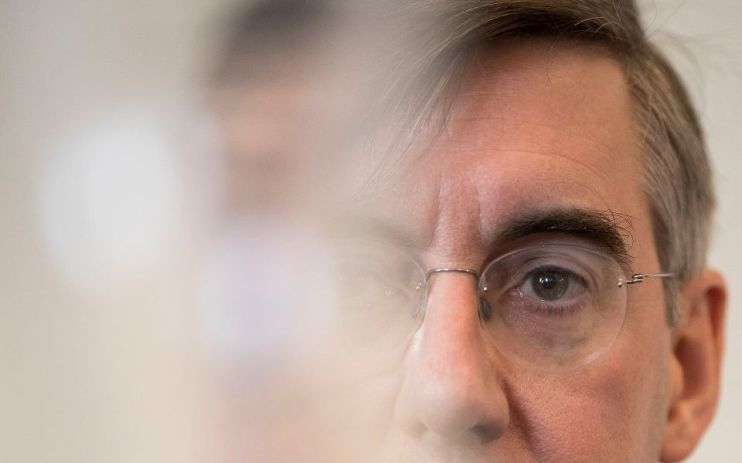Jacob Rees-Mogg adds fuel to the Brexit fire: ‘The EU is trying to punish the UK’

Jacob Rees-Mogg has claimed the EU is trying to punish the UK for Brexit.
The Minister for Brexit Opportunities and Government Efficiency said about the ongoing talks with the EU: “I think it [the EU] wants to make the UK feel bad about having left the European Union and that underpins its whole policy and it doesn’t really mind about the consequences of that.”
He told GB News: “And we just have to get on with life and recognise that we have left. We have to make our own way. We are an independent country and what the EU wants and thinks is secondary.
“The Paymaster General Michael Ellis has made a speech in Brussels today making it very clear that we are, if not at the end of the road, very close to it.”
“To cancel the TCA [EU-UK Trade and Cooperation Agreement], the European Union would need unanimity and it seems to me that’s a pretty high bar to get.
“Do they really want to make prices even higher for their consumers and their voters? I think that’s an interesting and important question.”
Jacob Rees-Mogg
“And you have to say to the European Union, does it really want to punish its consumers at a time of rising inflation? And inflation in a lot of the EU countries is higher than it is in the UK.
He said if the EU decides to retaliate with tariffs: “The EU…may decide it wants an act of self-harm, that is not under our control, but it would be a pretty silly thing to do.
“We have to govern in our own interest, not constantly dancing around what the EU thinks or doesn’t think. We’ve left, it’s not our business any more.”
Public spending fuels inflation
Jacob Rees-Mogg also warned increased public spending would fuel inflation.
“The problem with spending more money is you make the inflationary problem worse rather than better. This is very difficult for politicians because with a cost of living problem there aren’t easy popular things to do, and if you do those you make the problem worse,” he said on GB News.
“You can’t take short term expensive measures because they just things worse”
“The two domestic things [that have led to the inflation we are now seeing] were the quantitative easing from 2008 and the extreme government expenditure to deal with covid.
“Now, that money was the right thing to do and quantitative easing was the right thing to do but to do either of those things now would be adding fuel to the flames. So both of those things have to be wound back and brought under control.”
“You have to do, as Margaret Thatcher showed in the 1980s, the things that need to be done.”
Jacob Rees-Mogg
He also said, however, public spending during the Covid-19 pandemic was essential to save businesses.
“Oddly, not to have spent that money would have been even more inflationary because…if we hadn’t had furlough if we hadn’t had bounce back loans, every shop here would have closed…that money ensured the economy maintained supply for when the economy reopened,” said Mr Rees-Mogg.
“So, oddly the expenditure was non-inflationary to start with, but to continue with that level of expenditure would be extremely inflationary.”
“Inevitably if the Government runs a large deficit and interest rates remain very low and there’s £875 billion of quantitative easing, those add domestic inflationary pressures in addition to the global ones that have been driving this.”
Working from home
Jacob Rees-Mogg also suggested he was “suspicious” about the work from home arrangements of Civil servants.
He said: “I’m a little suspicious that the days most people want to work from home turn out to be Mondays and Fridays. I think that tells you something or hints at something at the very least.
“Civil servants have a contract. They should be expected, it’s not unreasonable, that they should stick to that contract.”
Those remarks come as amid Government plans to axe 91,000 posts.